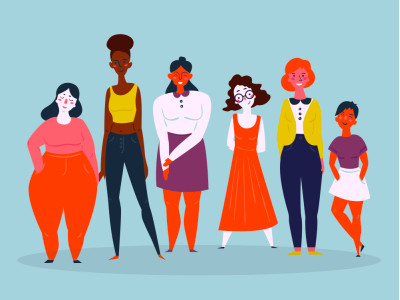
In our day-to-day working lives, a lot of what we do is done on autopilot and we aren’t consciously aware of what we say or do – we do what we are used to doing, even if this actually goes against the values that we consciously think about.
For example, when it comes to hiring new staff despite selection criteria, we all have an unconscious tendency to hire those who are similar to ourselves. Similarly, we also tend to promote or praise those who remind us of ourselves. Despite our best conscious intentions to include everyone and promote diversity, it is common for people to exclude those who make them feel uncomfortable without even realising why.
Why it is important to address unconscious bias in the workplace?
Unconscious bias is in everyone’s human nature; however it can restrict our learning potential and development if we have a closed mind as a large majority of our learning comes from those who are different to us. Perhaps unsurprisingly, the biggest reason for tackling unconscious bias in the workplace is down to business ethics
How do you rid unconscious bias from the workplace?
When it comes to promoting a change within the workplace, it is all too easy to focus on what people are doing wrong. However, all this tends to achieve is makinge members of staff feel blocked and does very little to change their ways. Instead, I believe that we need to concentrate on what people are doing well and develop these aspects further. A good example of this is workplace harassment – delivering training to men on how not to treat women at work often leads to resentment and an uncomfortable atmosphere whereas emphasising respect is likely to yield a much better response.
Putting this into practice involves changing the culture of an organisation. A strong culture of equality, diversity and inclusion will encourage employees to mirror this which will have an impact on overall business performance and growth when compared to companies who do not support such ethics. A successful culture development programme typically includes a combination of steps which will carefully diagnose the problem and define three essential aspects:
- Describe the current culture of the organisation
- Describe the desired culture
- Decide which aspects to change and which to keep in order to achieve the desired outcome
Ridding unconscious bias can be a relatively straight-forward process, as long as you keep things simple and consistent and keep reinforcing what you want to achieve. It is not a ‘one-hit’ initiative, but a cultural change which then brings the business the benefits of having a diverse, inclusive working environment.
About Stephen Fortune
Stephen joined the Oxford Group in 2016 as a Principal Consultant. His experience extends across a range of high profile projects and clients including The Children’s Trust, ED&F Man, Gilead, Novartis, Legal & General, Rabobank, Johnson Press, Sainsbury’s and William Hill and now The Oxford Group.
The Oxford Group is a people-focused business driven by a passion for helping organisations get the best from their people, unleash hidden talent and successfully manage their business through times of change. The Oxford Group is part of The City & Guilds Group, a global leader in skills development, which enables people and organisations develop their skills for personal and economic growth. For more information, visit www.oxford-group.com








